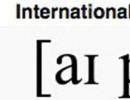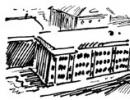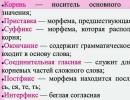Academic title assistant. Academic degrees, titles and insignia. History and modernity in the naming of scientists
In the scientific field and higher educational institutions there is a qualification system that allows you to establish a scientific hierarchy of scientific and pedagogical personnel - academic degrees and titles. In our country, the awarding of academic degrees and titles of associate professor and professor is somewhat different from other countries. As a rule, the academic title "associate professor" is assigned, and "professor" - to doctors of science, although there are exceptions. In other countries, degrees differ quite significantly in terms of qualification requirements, title, award and approval procedures.
In order to get degrees, you must first write and defend a thesis, and this is a rather voluminous scientific work, which can contain from 150 to 500 pages. scientific text. Is it possible not to write a dissertation on many sheets, but on quite legal grounds to successfully defend oneself? You can, although it won't be easy. The dissertation for the degree of Doctor of Science can be made in the form of a scientific report, in which summary research results. Such a report should be supported large quantity previously published scientific papers that are of great importance for science. In addition, the applicant must be well known to the scientific community for his research and discoveries in his field of activity.
From the standpoint of statistics, any citizen who works creatively in science has the right to be called a scientist. But do not forget another important truth: "Without a piece of paper you are a bug, but with a piece of paper you are a person." Especially in a society that occupies not the last place in the world in terms of formalism, bureaucracy. So, if you want to be considered a scientist, present a certificate stating that you are a scientist. Such certificates are diplomas and certificates, indicating the presence of an academic degree or title. So, in the beginning it is necessary to sort out these very degrees and titles, the presence of which is confirmed by documented scientific authorities authorized to do so.
In accordance with legal framework assessment of the qualifications of scientists and the criteria for determining this assessment, provided state system certification, in Russian Federation The following academic degrees and academic titles have been established for scientific and scientific-pedagogical personnel of the highest qualification:
· the scientific degree of doctor of science in the field of science according to the nomenclature of specialties of scientists;
· Candidate of science degree in the field of science according to the nomenclature of specialties of scientists.
Doctorate degree is awarded by the Higher Attestation Commission on the basis of a petition from the Dissertation Council, adopted based on the results of a public defense of a dissertation by an applicant with a PhD degree, taking into account the conclusion of the relevant expert council of the Higher Attestation attestation commission on the compliance of the submitted dissertation with the established criteria.
PhD degree is awarded by the dissertation council based on the results of a public defense of a dissertation by an applicant with a higher professional education.
Thesis for the degree of Doctor of Science should be a scientific qualification work in which, on the basis of the research performed by the author, theoretical provisions have been developed, the totality of which can be qualified as a new major scientific achievement, or a major scientific problem of great socio-cultural or economic importance has been solved, or science-based technical, economic or technological solutions are presented, the introduction of which makes a significant contribution to the development of the country's economy and increase its defense capability.
Thesis for a degree Candidate of Sciences should be a scientific qualification work, which contains a solution to a problem that is essential for the relevant branch of knowledge, or scientifically based technical, economic or technological developments that are essential for the economy or ensuring the country's defense capability.
According to Art. 22 of the Federal Law of August 22, 1996 "On Higher and Postgraduate Education" in the Russian Federation, the academic titles of professor and associate professor are established.
Unified register of academic degrees and academic titles, approved by the Decree of the Government of the Russian Federation of January 30, 2002, established the following academic titles for scientific, technical and scientific workers:
· professors
· associate professor by department educational institution higher professional and additional vocational education;
· professors by specialty according to the nomenclature of specialties of scientific workers;
· associate professor in the specialty according to the nomenclature of specialties of scientists.
According to paragraph 6 of the Regulations on the procedure for conferring academic titles, approved by the Decree of the Government of the Russian Federation of March 29, 2002, academic title of professor in the department can be awarded to doctors of science who, under an employment contract, fill the positions of a professor, head of a department, dean of a faculty, head of a branch or institute, vice-rector, rector of a university or advanced training institution, if they have published educational, methodological and scientific works, read a course of lectures at high professional level, as well as at the time of submission of attestation documents:
· have at least ten years of experience in scientific and pedagogical work, of which at least five years of pedagogical work in universities or institutions for advanced training;
have trained as academic supervisors or academic advisors, usually at least two students who have been awarded academic degrees.
Academic title of professor in the specialty may be awarded to doctors of sciences who, under an employment contract, fill the positions of a leading researcher, chief researcher, head (head) of a research department (department, sector, laboratory), scientific secretary, deputy director, director of scientific organizations, scientific departments of universities or institutions of advanced training and the relevant requirements of clause 11 of the Regulation.
One of the main conditions for conferring the academic title of professor is that the employee has the academic degree of Doctor of Science. However, the academic title of professor in the department can be awarded without defending a doctoral dissertation to candidates of science (as an exception), art workers, specialists in physical culture and sports, major specialists who have received international or all-Russian recognition in a particular field of knowledge, if their activities comply with the requirements of paragraph 1 of Art. 6 - 10 Regulations on the procedure for conferring academic titles.
Academic title of associate professor in the department may be awarded to doctors and candidates of sciences who, under an employment contract, fill the positions of associate professor, professor, head of department, dean of a faculty, head of a branch or institute, vice-rector, rector of a university or advanced training institution, if they have published educational, methodological and scientific works, read the course lectures or conduct classes at a high professional level, as well as at the time of submission of attestation documents:
· successfully work in the specified positions during the year;
· have at least five years of experience in scientific and pedagogical work, of which at least three years of pedagogical work in universities or institutions for advanced training;
Academic title of associate professor in the specialty can be assigned to doctors, candidates of sciences, who, under an employment contract, replace the positions of a senior researcher, chief researcher, head (head) of a research department (department, sector, laboratory), scientific secretary, deputy director, director in scientific organizations, scientific divisions universities and institutions for advanced training and the relevant requirements of paragraph 17 of the Regulations of March 29, 2002
Docent, as a minimum, must have a Ph.D. At the same time, if there are conditions specified in paragraphs 13 - 16 of the Regulations on the procedure for conferring academic titles, the academic title of associate professor can be awarded without defending a dissertation, as an exception, to persons who have higher education, art workers, specialists in physical culture and sports, highly qualified specialists who have received international or all-Russian recognition in a particular field of knowledge.
In this way, academic degrees and titles - qualification system in science and high school, which allows ranking scientific and scientific-pedagogical employees at individual stages of an academic career.
Degrees in Russia are important concepts in scientific activity, as they establish the necessary qualification sequence in scientific circles. The first scientific degrees in Russia began to be awarded at the end of the distant 18th century by Catherine II. At the present time, a two-stage hierarchy of scientific professional levels is used, modeled on the gradation of academic levels in force in the USSR.
What is a degree
In Russia, a scientific degree is called a certain level of qualification of a scientist, a form of attestation of scientists, which makes it possible to establish the ranks of "servants of science" and the sequence of stages of an academic career. To obtain it in the Russian Federation, it is necessary to defend a dissertation for a candidate or doctor of science. In modern times, any researcher knows what academic degrees are and in what gradation they are.
University academic degrees of bachelor and master, borrowed from the European educational system, are not types of academic degrees. These include only Ph.D. and Ph.D. degrees.
Degrees in ascending order
Academic degrees in our country differ from others in terms of types, names, hierarchy, as well as the way scientific degrees are awarded in different countries. For any branches of science and specialties in European countries, a three-level hierarchy of academic career is applied. In ascending order, the elements of its classification are as follows:
- Bachelor;
- Master;
- Ph.D.
The level of "Doctor of Philosophy" does not mean an example of a separate branch of knowledge, but generalizes them as a whole. The degree of Doctor of Philosophy abroad is the highest stage of the academic career of a scientist from the list and is an analogue of the degree of a Russian doctor.
In Russia, scientific degrees are understood as a two-stage gradation of the stages of an academic career. List of species in ascending order of Russian scientific levels:
- PhD;
- Ph.D.
Conditions for awarding a degree
Currently, the competition for the degree of candidate of science, as well as the degree of doctor of science, is carried out by defending an independently conducted dissertation research by speaking before the dissertation council. It is created under the leadership of the Higher Attestation Commission at a university or other institution. Each dissertation council usually works with no more than three specialties. It consists of at least 19 people, more than half of whom are employees of the institution under which it was created. Only doctors of sciences can be members of the dissertation council.
The defense of a thesis for a candidate or a doctorate does not have to be from the same field in which the applicant has an education, as this is not regulated by a special Regulation governing this activity.
There is no specific list of industries prohibited or allowed for protection, for example, for a candidate of economic sciences. It is possible for him to earn degrees in every industry he chooses. As an example, a graduate of the Institute of Law or social sciences in technical specialties can also gain success and defend a dissertation. In practice, it often happens that a graduate of the Faculty of History becomes a candidate of physical and mathematical sciences and subsequently builds a career as a mathematician or engineer.
A prerequisite is that the author of a thesis for a degree at any level must provide a diploma of higher professional education.
What is not a degree
The meanings of the concepts of academic degrees and titles differ significantly from each other, although they are often confused. Titles mean the position of a specialist or teacher in a university and other scientific organizations, a qualification level in a career as a researcher. These are associate professor and professor. They are awarded for life for scientific and pedagogical merits to specialists of universities and other organizations specializing in science, according to the documents provided by these organizations.
Participate in the award of academic titles Higher Attestation Commission and Ministry of Education. Only the title of professor of the Russian Academy of Sciences is awarded Russian Academy nau to.
After awarding a certain title, a certificate is issued.
Associate professor and professor are not only academic titles, positions in universities are similarly named, but this is not the same thing. Often, the position of a teacher depends on the type of academic degree. As a rule, a specialist who holds the position of a teacher and has a Ph.D. degree is appointed as an associate professor, and specialists with a doctoral degree most often occupy fairly large positions and are professors. At the same time, teachers who have not yet received such a title can get the position of associate professor or professor. After working in a certain position for some time, they can be nominated for the corresponding rank. It also happens vice versa: an employee who has high rank occupies a lower position.
Degrees in universities
In 2015, the Government of the Russian Federation launched a project, according to which a list of universities was approved that can independently award their own academic degrees. AT this moment it includes about 60 higher educational institutions, which belong to:
- National research universities;
- Federal Universities;
- Universities from the 5-100 program.
These universities must necessarily correspond to the high quality of pedagogical, scientific work and have at least one dissertation council. This means that not all educational establishments have such an opportunity. The first universities included in this list are St. Petersburg State University and Moscow State University (examples of the name are Candidate of Sciences of Moscow State University, Doctor of Sciences of St. Petersburg State University). Bakhtiyor Alimjanov became the first candidate of science at St Petersburg University with a dissertation on history in January 2017. The rest, included in the list, educational institutions can conduct the first defenses only from September of this year.
The successful implementation of this project is necessary to increase the prestige of Russian science among the developed world powers.
As a rule, university researchers and lecturers have an academic degree and an academic title. What is the specificity of these regalia?
What is an academic degree?
Under degree It is customary to understand the level of qualification of a representative of the scientific field, assigned to him after completing training in special programs. In Russia, two academic degrees have now been established - Candidate of Science and Doctor of Science.
The first is assigned to a person who has successfully completed postgraduate studies and defended his Ph.D. thesis. The degree of doctor of science is awarded to a scientist who is studying for a doctorate, defending a doctoral dissertation, and also receives the approval of the council of the Higher Attestation Commission.
Only candidates of sciences can receive a doctorate degree. At the same time, the specialization in which a person was trained in graduate school often does not coincide with the one in which he intends to study in doctoral studies. For example, a candidate of economic sciences may well become a doctor of science in physics.
What is an academic title?
Under academic title It is customary to understand the level of the position of a representative of the scientific sphere, assigned to him in the process of working in a university or scientific institution. There are two academic titles in Russia - associate professor and professor.
An important nuance is that a person can be an associate professor or professor not because he has the appropriate academic title, but by virtue of his position. In turn, a person who has a documented title of associate professor or professor may not hold the corresponding positions in the university.
The title of associate professor (if we talk about its official assignment) a scientist can receive for success in research or pedagogical work. The title of professor can be awarded to an employee of the university for success in pedagogical work, as well as in the preparation of graduate students.
The title of associate professor and professor is confirmed by a special certificate. In practice, a scientist can most often become a professor only if he has experience as an associate professor.
Comparison
The main difference between an academic degree and an academic title is that a person receives the first regalia based on the results of training in special programs - in graduate school or doctoral studies, the second - in the process of working at a university or scientific institution.
At the same time, both concepts are closely related in practice: as a rule, scientists with a candidate's degree become associate professors, and doctors of science become professors. Although, if a person achieves outstanding achievements in science, he can get an academic title without an appropriate degree. But this is a rather rare case.
Having determined the difference between an academic degree and an academic title, we will fix the main conclusions in the table.
| Academic degree | Academic title |
| What do they have in common? | |
| The academic title is given, as a rule, only to those representatives of science who have a scientific degree (candidates become associate professors, doctors become professors) | |
| What is the difference between them? | |
| Presented by Candidate and Doctor of Science degrees | Represented by titles of Associate Professor and Professor |
| A prerequisite for the award of a scientific degree is training in special programs - in graduate school (for obtaining a PhD degree), in doctoral studies (for obtaining a doctorate degree) | The main condition for conferring a scientific title is the implementation of labor activity in a university or scientific institution |
It is not easy for a mere mortal to understand all the categories that make up the scientific "career ladder". Associate professors, professors, graduate students, candidates of science - you can hear different scientific titles, it is especially easy for a student who has just started at a university to get confused.
What do these degrees mean in Russia, how they are arranged in ascending order, who receives them, how they differ from academic titles and how not to confuse them with scientific positions - we will analyze in our article.
An academic degree is a qualification of the achieved professional level, awarded for scientific and research achievements.
The degree is awarded for achievements in science
A degree can be obtained at a university and research institute (the so-called Research Institute, we use this term to denote various scientific organizations).
A positive or negative decision on the award is made by a special body - the dissertation council.
A degree is a professional title that does not depend on the position, teaching and experience and determines exclusively the scientific "rank".
It allows you to qualify theoretical knowledge and practical achievements in the field of science.
This title, obtained earlier, remains with the person for life, unless he receives a higher degree or is not disqualified.
In Russia, two scientists are approved by a special regulation: a candidate of science and a doctor of science, who were used back in Soviet times.
This two-tiered system is a legacy of the German scientific hierarchy in use even before the revolution.
Today, in most countries that have joined the Bologna Process, one degree of postgraduate qualification is used - Doctor of Philosophy, where philosophy equals science in general.
Since Russia also signed the Bologna Convention aimed at bringing scientific and educational systems to a single order, we may soon see changes in this area.
Degrees: list in ascending order
Currently, two academic degrees are awarded in the Russian Federation:
- Candidate of Sciences - the first qualifying degree.
- Doctor of Sciences is the second and highest qualifying degree.
The scientific hierarchy is limited to these two ranks.
Bachelor's, specialist's and master's programs - the levels that indicate the amount of education received at a university - do not correlate in any way with a scientific degree in our country.
A degree can only be obtained in a certain scientific field, there is an official list that limits the list of sciences. For example, the name of the full academic degree of a teacher of criminal law may look like this: candidate of legal sciences (candidate of law) in the specialty 12.00.09 "Criminal procedure", where the specialty code is indicated by numbers.
The difference between an academic degree and an academic title
If you are not directly related to scientific world, then it is not surprising to get confused in academic degrees and academic titles.
To clear all doubts, let's indicate how these "scientific ranks" differ.
To obtain this scientific title, experience, the number of published works, the number of "wards" - students and graduate students who conduct their research under the guidance of a teacher, are important.

The academic title is awarded for achievements in scientific and pedagogical activities
In Russia, two academic titles are awarded:
- Docent;
- Professor.
If you want to show off your education in the society of scientists, do not forget that the degree is “awarded”, and the academic title is “assigned” - such a designation is accepted in the professional lexicon and in regulatory documents.
Until recently, the title denoted two concepts: the above-described scientific title and belonging to, on which the employee worked. Since 2014, it can only be obtained as a qualifying rank.
From now on, only the Ministry of Education has the right to assign an academic title, based on experience and professional merits, previously it was the prerogative of the Higher Attestation Commission (Higher Attestation Commission - a competent body authorized by the Ministry).
The procedure for obtaining the title has also undergone a change - if earlier a “professor” could be obtained immediately, now a mandatory condition is three years of experience in the rank of associate professor.
Traditionally, scientists first receive a degree - and only then they are awarded the title.
That is, in most cases, it happens like this: a researcher receives a degree, say, a candidate of sciences, and then the title of associate professor.
Thus, professors are mostly doctors of science.
But, since it is not prescribed by law, it is possible to meet a professor without a doctoral degree. In the scientific lexicon, such professors are called "cold".
Degrees in universities
It is important not to confuse the academic title with the official position in which the employee works.
In educational and scientific organizations, the terms "associate professor" and "professor" also denote the names of job levels. Both the degree and the title are approved for a person for life - they take office only for a certain one.
The job ladder is determined by the internal regulations of the university approximately according to the following hierarchy:
- laboratory assistant;
- Senior Assistant;
- assistant;
- teacher;
- Senior Lecturer;
- docent;
- Professor;
- department head;
- dean;
- vice-rector;
- rector.
That is, you can be a professor, but not have any academic title, or have the academic title of a professor, but work as an associate professor.
Often, a teacher holding a professorship does not always have the title of professor, and the head of the department can be just an associate professor by title.
Most often, the title itself is assigned after work experience in the position of the same name.
This transfer of rights caused fierce debate in scientific circles. Many believe that the lack of state control over the award process will lead to corruption and the “shredding” of these categories.
In order for you to be able to apply for the first degree - a candidate of science, it is imperative to have a specialist or master's degree behind you, a bachelor's degree is not enough.
It is believed that a master's degree is the first step on the way to graduate school, as masters defend a dissertation, which then may well "grow" to a Ph.D.
To obtain the rank of candidate of sciences necessary condition is the passing of the candidate's minimum - examinations in the specialty, philosophy and foreign language.

Exams must be passed in order to be admitted to defend a dissertation.
Examinations are admission to the defense of a candidate's qualifying work - a dissertation.
PhD thesis is a qualifying work of value to the scientific industry, representing new practical scientific achievements or the resolution of theoretical scientific problems.
According to the main ideas of the dissertation, it is necessary to publish several articles in scientific journals (at least two publications).
3 months of vacation are given to write a dissertation if the applicant works in a scientific organization.
Most applicants for the degree of Ph.D. study in graduate school - the first level of postgraduate education. There are postgraduate courses at universities and scientific organizations, and at research institutes there are many times less.
The term of postgraduate study is 3-4 years. Postgraduate students are assigned one of the junior scientific positions and assigned teaching or other duties.
Those who do not want to devote themselves to science and teaching have the opportunity to defend their dissertation work in the form of free competition - that is, to take exams and write research on their own without enrolling in graduate school.
According to statistics, out of three applicants, only one receives a Ph.D. degree on the first try. Many succeed in defending their dissertation only on the second or third attempt.
A doctoral dissertation is a qualifying work that is an important scientific achievement or a solution to scientific problems of great political, economic, cultural significance for the scientific community and the state as a whole.

Only those who already have a Ph.D. can become a Doctor of Science
For comparison, when a scientific title is awarded, a certificate of its assignment is awarded.
Thus, today in the Russian Federation there are two academic degrees: candidate of science and doctor of science.
To achieve the award of a degree, it is necessary to defend a dissertation work that meets high requirements.
If you are going to build your career in science, you cannot do without a degree - it confirms your qualifications in the scientific field, and in most cases precedes the award of an academic title.
Obtaining a degree also affects the amount of wages - its holders are entitled to a higher official salary.
AT last years many top managers and leaders also strive to receive a title confirming a high level of education top level in state structures - this increases their personnel value; in large companies, the demand for employees with such qualifications is growing.
In this video you will learn how to write a dissertation correctly:






